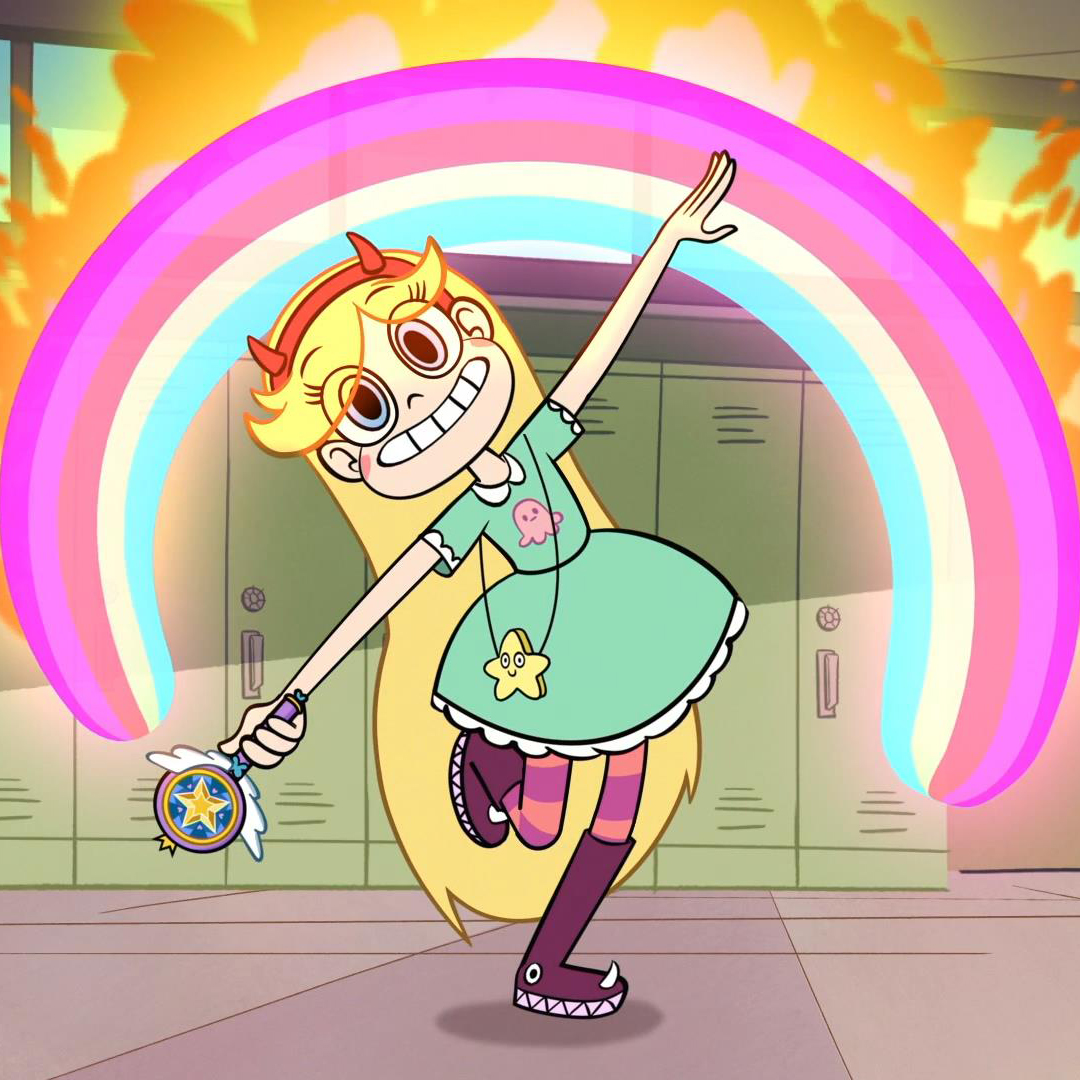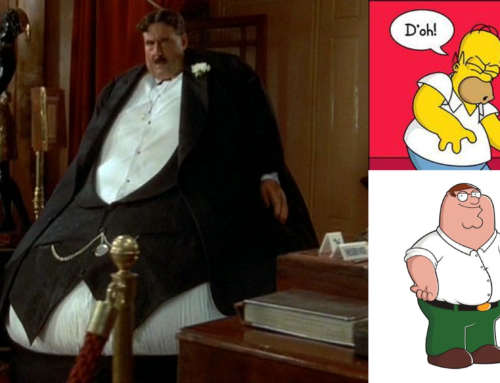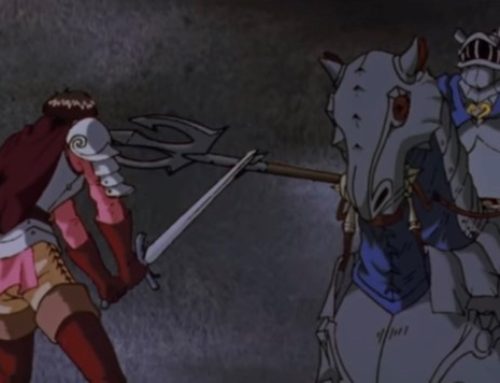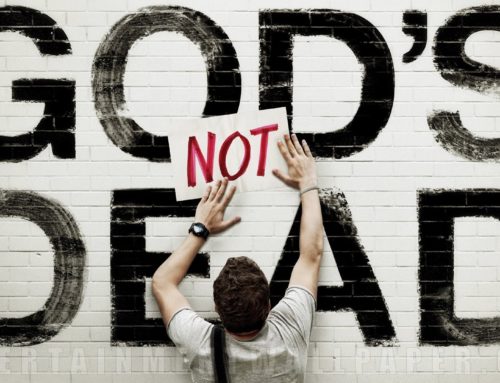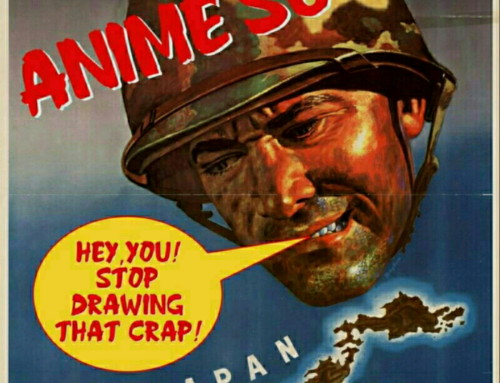Believe it or not, there was a point in my life when I believed that gun control was a good idea that was poorly implemented. I thought that if the government would just enforce the laws we already have in the United States, we wouldn’t have so many mass shootings.
All of that changed when I saw the finale of Star vs. The Forces of Evil, which convinced me that gun control was a bad idea in principle. It did this, by having one of the most poorly written pro-gun control messages I have ever seen in fiction, and today, I want to go through what can go wrong if you flub your own message this badly.
Star vs. the Forces of Evil was a show I started watching years ago when I was going through Adventure Time withdrawal. The basic premise is that a magical princess from another dimension who should not be trusted with so much as a pack of fireworks comes of age to receive inherit her mother’s magic wand, with which she causes more mayhem than pack of monkeys on a miniature golf course. She gets sent to Earth, for reasons that never really get explained (I suspect it’s because unlike the other magical places we get to see, Earth has no means of sending Princess Star back, and no means of retaliating against her royal family for setting this magical terrorist loose in a public school).
The show had just enough tongue-in-cheek humor to recognize how the authority figures involved were just as untrustworthy as Star herself, so you weren’t too surprised when the child characters are allowed the amount of freedom that they have, and engage in hilarious shenanigans. Things change midway through season 1, and we learn that the Mewmans (Star’s almost-human species) conquered the land of Mewni where they currently live, and took it from the population of monsters, which still somewhat occupy the wild, underdeveloped parts of the kingdom.
From there, the show developed a bit more of a plot with the reveal that while some monsters were truly evil, some were simply trying to get their ancestral home back. And the series actually addressed the issue that the Mewmans currently living there had no part in the conquest of Mewni that took place before anyone presently alive was born, and that kicking the Mewmans out of their current homes wouldn’t be just at this point.
The show was pretty well-written for the first two seasons, culminating in what probably should have been the series finale in The Battle for Mewni, where the primary villain of the show was finally killed for good. This would be, in my opinion, the last high point in the series. The show would quickly go downhill from there with issues of rampant shipping, which felt more like the adult writers behind the show taking out their relationship problems and using the series as their own twisted form of therapy.
But what I really want to focus on today was the fourth and final season, in which the creators decided to make the new point of the show about gun control. They also stated that the finale had a lot to do with things like privilege and ethnic supremacy, but the main focus was about power. In sum, the Mewmans had access to magic, which made them more powerful than the monsters. This was especially notable in cases where the monsters were large and notably strong, whereas the Mewmans were no stronger than humans, so if the Mewmans didn’t have magic, along with things like steel and medieval weaponry, the monsters would be able to crush them pretty easily. Magic allegedly made things “unfair,” but the fact of the matter was that the physical abilities of Mewmans and monsters were already “unfair.” That was the first problem.
The second problem was that magic wasn’t something used exclusively by the Mewmans; it was already a natural force of the universe of the show. Even monsters could wield the powers of the royal family’s wand, if they got their hands on it, and lots of other beings had regular access to other types of magic that had nothing to do with the Mewmans and their royal family. The idea that it was all the same type of magic in the first place was never really elaborated on, especially since whole species that we see throughout the bizarre dimensions in the show are dependent on the stuff. It’s even confirmed in-universe that these creatures die without magic.
So, at some point, Princess Star decides arbitrarily that magic is the reason for all the problems between Mewmans and monsters, and that if Mewmans didn’t have magic to conquer and oppress the monsters with, there’d be peace, or…something. Already, this is some terrible writing, but then Star decides that destroying all magic (which is apparently something she can do) is the final solution to the problem. This is treated, according to the creators, as being equivalent to getting rid of all guns to stop gun violence.
And now I get to the meat and potatoes of this show’s finale, and why the message was so poorly handled. This finale is effectively admitting that simply getting rid of all the guns that exist now wouldn’t stop people from making new ones. At the time the final episode of the show aired, someone had already successfully printed a one-shot pistol with a 3D printer. It only worked once before being irreparably broken, and 3D printers aren’t cheap, but imagine someone makes a few dozen of these things, or if the technology gets more advanced. Even people who don’t have access to illegal firearms would soon be able to make their own weapons at home.
So, if the show’s solution to privilege and oppression, is to alter the laws of the universe in which the characters live so that magic doesn’t exist and doesn’t work anymore, then they’re effectively saying that gun violence can only be solved by rewriting the laws of nature so that guns don’t work anymore, either. If there’s one thing you take from this article, please let it be this: any solution to a real world problem that involves rewriting the laws of reality is the same as admitting you don’t have a solution at all.
But the show goes even further down this hole by showing what happens after magic is destroyed. Entire species, including characters who had previously been shown and had enough personality that they’d earned places in the fandom, were killed because of their dependency on magic. And the show doesn’t even play games trying to cover for this fact; it’s openly acknowledged before Star destroys the magic that these characters will die. The show tries to cover for this by showing that at least one of them is okay with this fact, but there’s no way around this; Star commits genocide, on multiple species, and there’s no way every member of those different peoples were willing to die just to solve a land dispute between the monsters and Mewmans. This shines a light on the fact that even if we could snap our fingers and change the laws of reality to make guns stop working, the chain reaction that would cause would produce a mountain of corpses by the next morning.
Now, some people might say that the problem with this finale was that the point the creators were trying to make was fundamentally wrong. That gun control is fundamentally a bad idea, and that the creators couldn’t address every point its opponents would make to the finale without ending up with a final message as disastrous as this. And maybe that really is the problem. But beyond this, I think the biggest problem has to be that the creators still seem to defend the position they took and the finale they wrote. I could forgive not changing their stance on political issues like gun control. I cannot forgive refusing to learn from their mistakes in handling their own message in a cartoon.
This is quite possibly the best of how not to do a political message in a show ever. As I said at the beginning of this article, it convinced me of the exact opposite of what the creators were trying to prove. And that’s not necessarily because the anti-gun control message is infallibly correct. I personally believe that the impossibility of rewriting the laws of physics to eliminate all guns, and the idea of how many people would die if we somehow did, make a very strong case as to why gun control is a fruitless endeavor. This was before 2020, the year my anti-gun dad who once swore he would never allow a gun in his house finally caved and bought a shotgun (after I threatened to buy one if he didn’t). So maybe it really is the case that gun control is fundamentally an indefensible position.
But I’m not convinced that the people who believe in gun regulation can simply be written off as either stupid or evil. It’s possible they know something I don’t. But if you’re going to create any kind of message in your stories, there are three lessons I want people to take from the finale of Star vs. the Forces of Evil.
- The solution to whatever societal ill that you’re trying to oppose shouldn’t be impossible, like changing the laws of the universe.
- The solution shouldn’t involve the destruction of entire races and cultures, either on purpose (I wish that went without saying) or by accident.
- Do not have a single person force a devastating change that will negatively impact billions of people, and expect to smooth over it by showing one person who will be affected say “go ahead, it’s cool.” Your audience is not going to assume that she speaks for the majority of the people you’re about to kill.
And that should get you started on the list of what not to do when making a political message. All joking aside, spending some time thinking about these things, and making certain you haven’t accidentally broken one of those three rules, would go a long way in ensuring that you handle your message better than most fiction today. I intend to address the subject of making messages in stories some more in the future, so stay posted. Soon, I intend to address one of my least favorite Christian movies of all time, in case you think I’m only going to criticize left-wing messages.
In other news, I’m starting a YouTube channel soon, and possibly branching into other media, too. I also have plans to get an AR test available for Heroes of Janaan, so keep an eye out for that when it comes out.
Until later, keep on creating!

